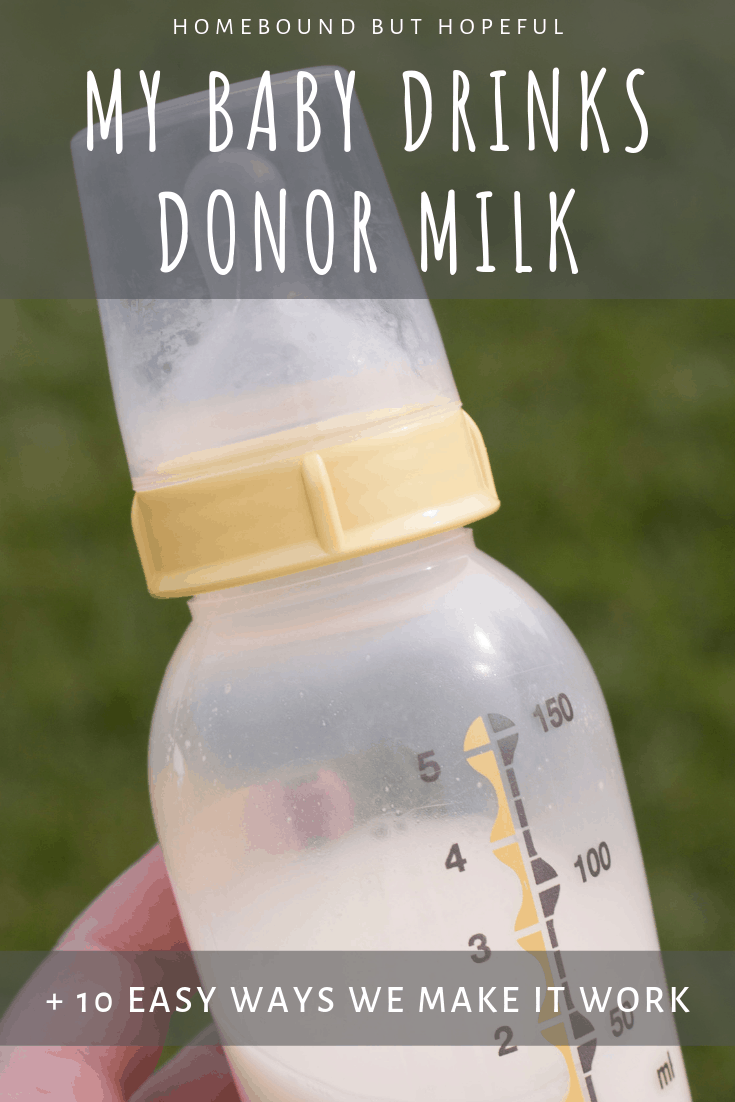My Baby Drinks Donor Milk + 10 Easy Ways We Make It Work
Welcoming a new baby brings all sorts of choices and challenges to a family. One of the earliest- and often most divisive- is the deciding how your will feed your newborn. Mommy wars, parenting shaming, and mom guilt abound surrounding this topic. I do NOT want to jump into all of that craziness, since I take a firm ‘fed is best’ approach to the question. I’m open about the choices we’ve made to feed our newest little boy, and the topic is often met with surprise, confusion, and plenty of questions. So today, I’m sharing our choice to use donor milk to feed our baby. Read on to see why, and check out some tips if donor milk seems like a choice your family would like to make.
WHY DONOR MILK IN THE FIRST PLACE?
A Little History
When it comes to feeding my older kids, I have seriously done and tried IT ALL. #thebigone drank formula from a medicine cup while I attempted to establish nursing with him. Then formula from a bottle while I tried – unsuccessfully – to pump milk for him as well. We ultimately went to just formula, starting with a pretty standard one, and then switching to a ‘gentle’ version later. He was a strong, healthy baby, and formula was the best choice for me at the time.
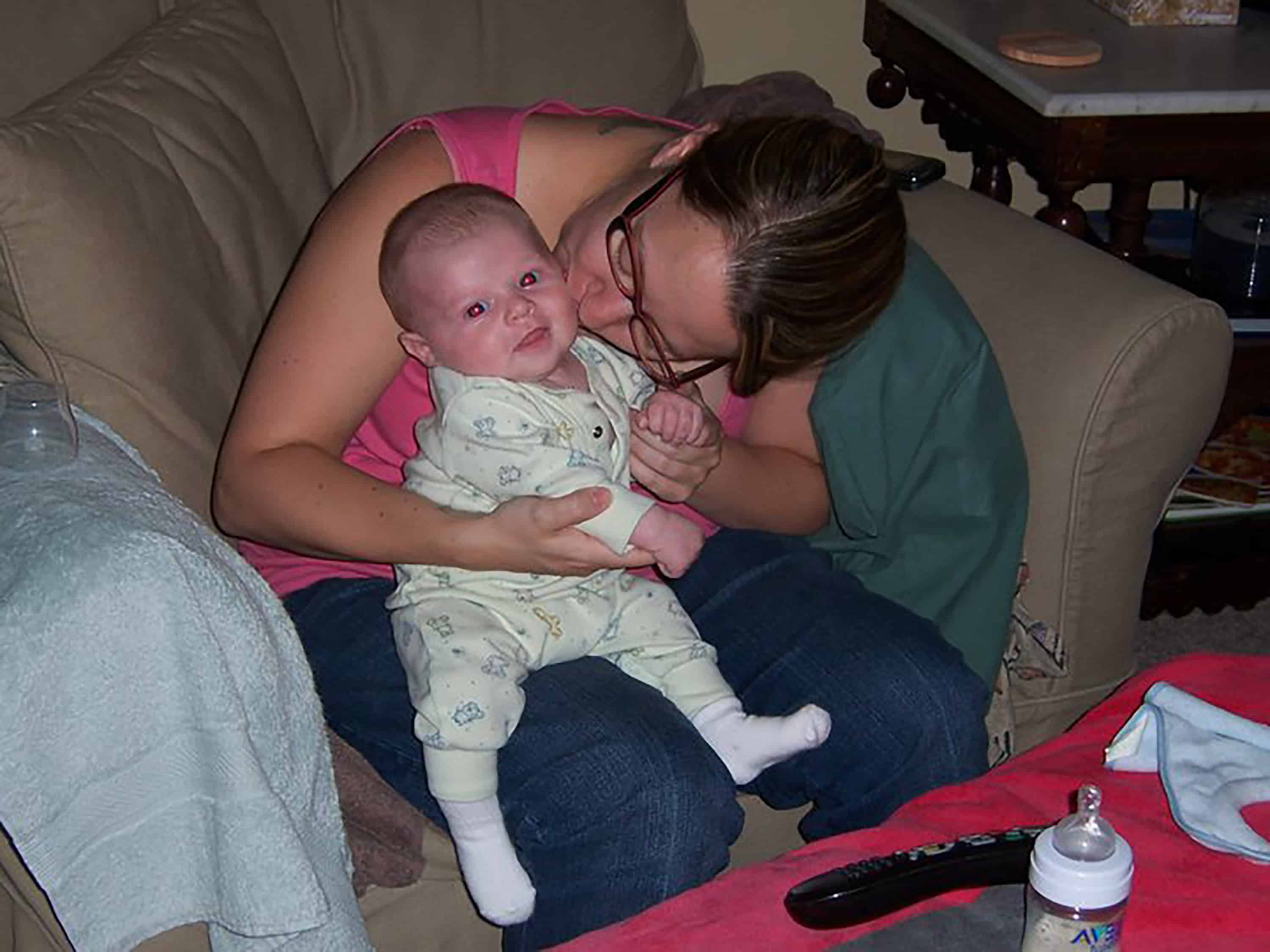
With #thelittleone, I wanted to nurse him exclusively. I wasn’t a single mom anymore, I wasn’t working anymore- I thought maybe I had the support and time to commit to it. He struggled to nurse and gain weight. We tried nipple shields, supplemental nursing systems, bottles of formula- it was a tough time for me (and him!) Eventually, we settled on exclusive pumping, which I did successfully for a full year. He also received some donor milk throughout the process to supplement my iffy milk supply. He was a strong, healthy baby, and pumping was the best choice for me at the time.
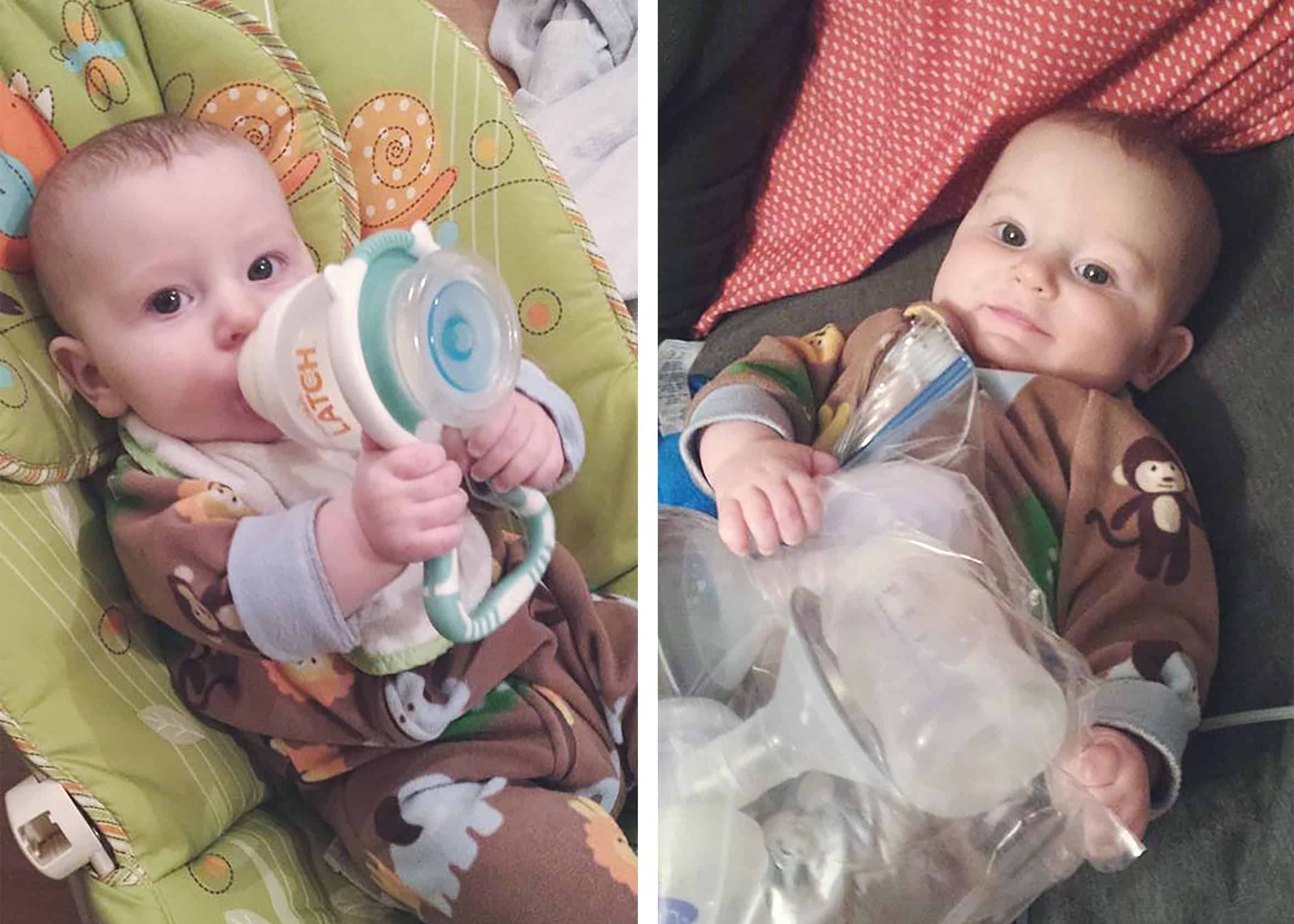
This Time Around
So, we made it work. Formula, pumping, donor milk- I figured it out with the older boys. But if I’m being honest, my mental health took a hit during that time- especially with #thelittleone. I felt like I paid more attention to my pump than my baby. Everything I ate or did was scrutinized for if it would impact my milk supply. As soon as I tried to lose baby weight, my supply would start to dry up. By a year, I felt like a prisoner chained to my pumps.
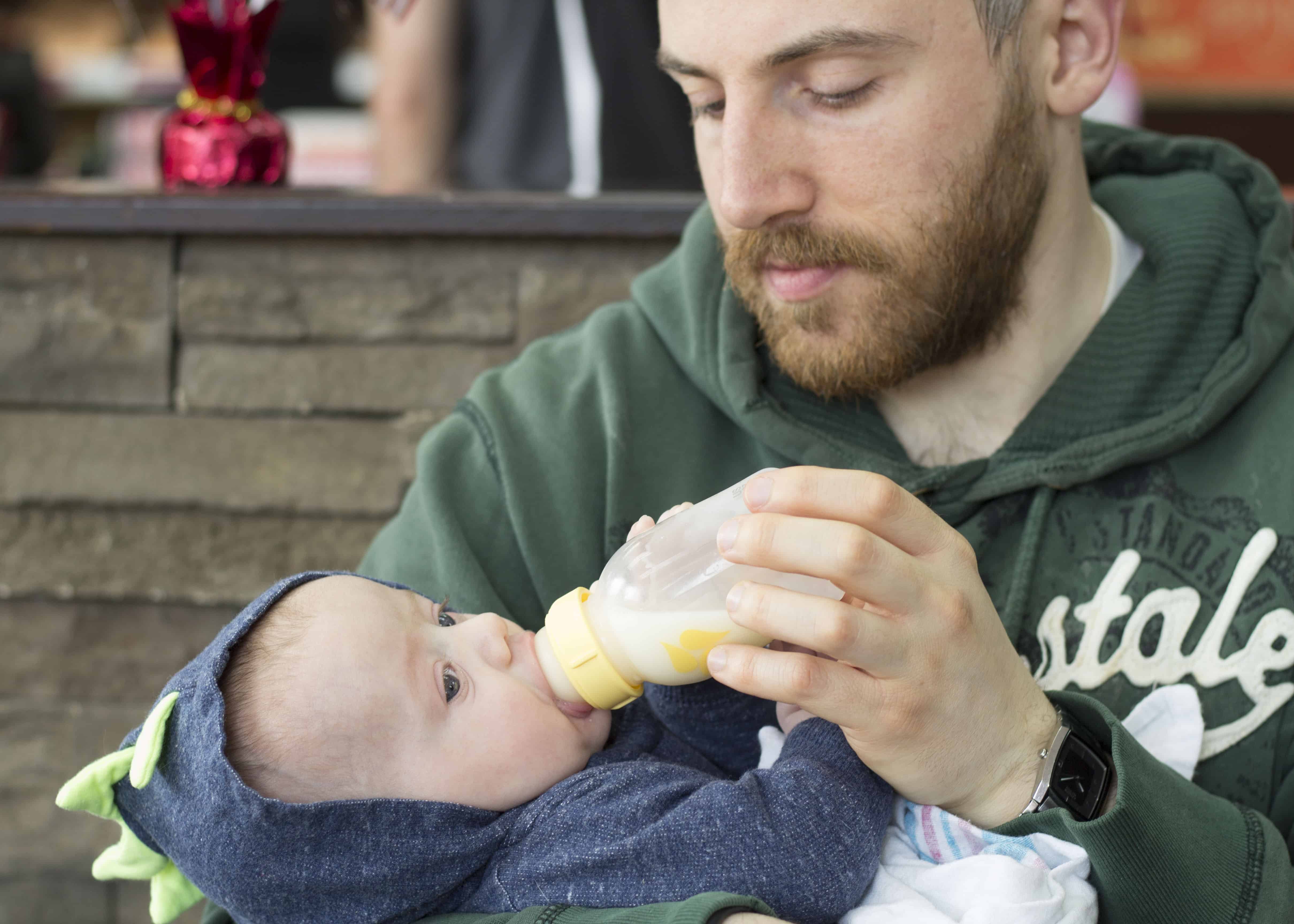
For #thelastone, I decided before we even tried to get pregnant, that this time would be different. This time around, I rely almost entirely on donor milk to feed my baby. Typically, he drinks a 3 oz. bottle of formula every evening, in hopes he might sleep a little longer. But otherwise, on a ‘normal’ day, #thelastone chows down exclusively on donor milk other moms pumped for him. He is a strong, healthy baby, and pumping was the best choice for me at this time.
What’s The Benefit?
While #thebigone was generally a strong, healthy baby, he did home some minor health issues early in life. Chronic ear infections, reactive airway disease, and an allergy to milk were some of the biggest, and are often linked to not breastfeeding. #thelittleone escaped most of these health issues, but my own mental well being suffered immensely for that first year. We were hopeful we could find a happy medium to feed #thelastone- a solution that we felt helped avoid some of the allergy issues that run in our family, but also allowed for a happier, healthier mom. Donor milk, full of immune boosting goodies from the pumping moms, seemed to be the perfect choice- and has worked beautifully so far.
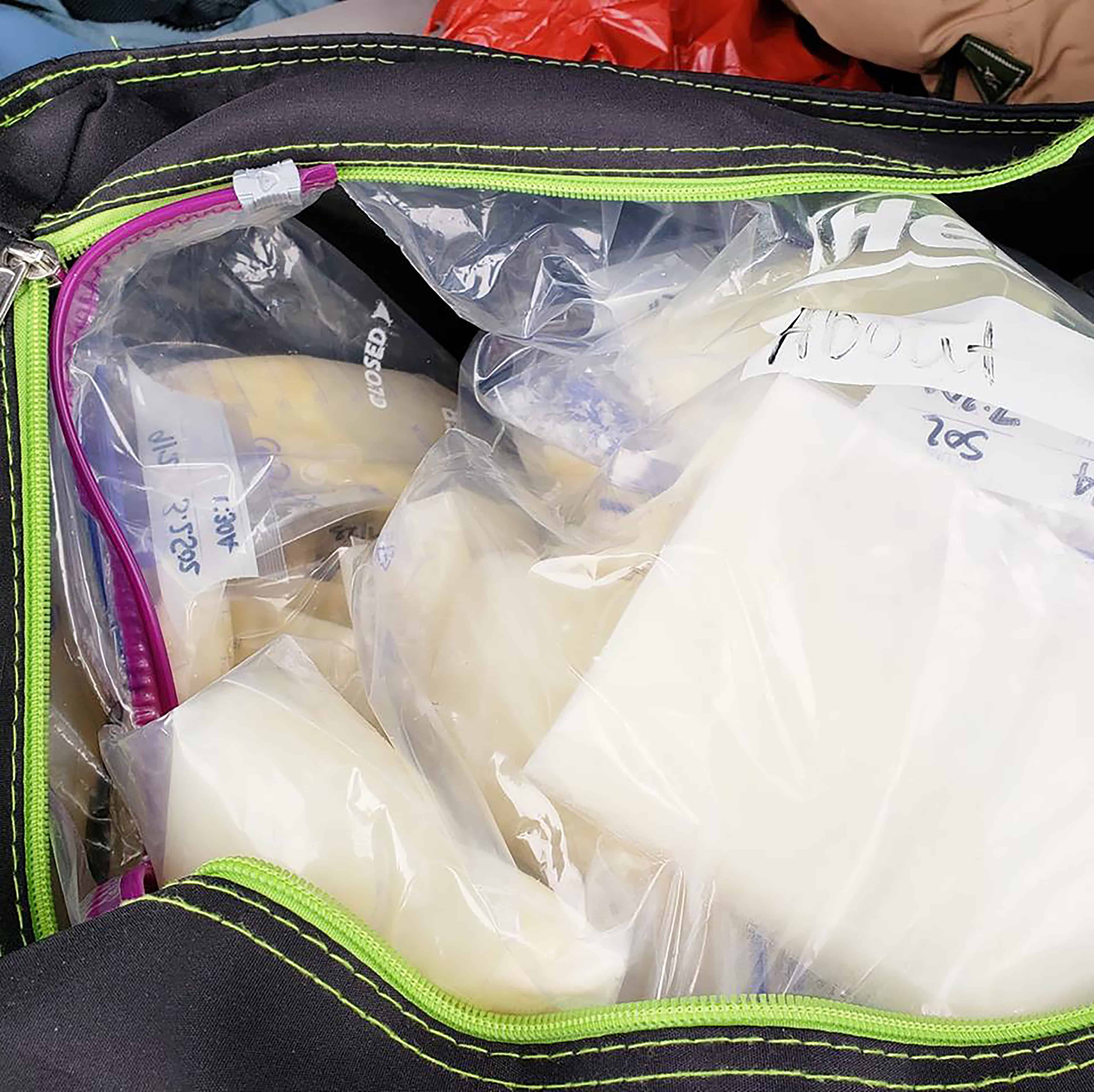
TIPS TO MAKE DONOR MILK WORK FOR YOUR FAMILY
If you’ve given it some thought, and want to try donor milk for your own little squish – whether to supplement or entirely replace your own milk – here are some suggestions to make it easier. They don’t apply solely to using donor milk though- many are important factors to keep in mind with whatever feeding approach you take. (And remember- fed is best!!)
Do Your Research
Using donor milk isn’t exactly simple. You need to have a strong understanding of the process, as well as the benefits and the risks before committing. I suggest talking to others who have done it, and hearing about their experiences. You want to be prepared for the journey ahead, which has some practical challenges, and can also have emotional difficulties as well. Doing your research thoroughly and early will help you feel prepared for and committed to the choice your family is making. Continue to research throughout as well- verify that medications are safe for breastfed babies, etc, and be your family’s best advocate.
Stock The Supplies You’ll Still Need
If you are planning to rely entirely on donor milk, you are able to skip some of the typical nursing supplies. Namely, no pump, nipple shields, milk savers, nursing bras, nipple cream, etc for you! There are still plenty of things you’re going to need, and some in very large quantities!
- Exclusively breastfed babies, no matter the milk source, need a Vitamin D supplement daily.
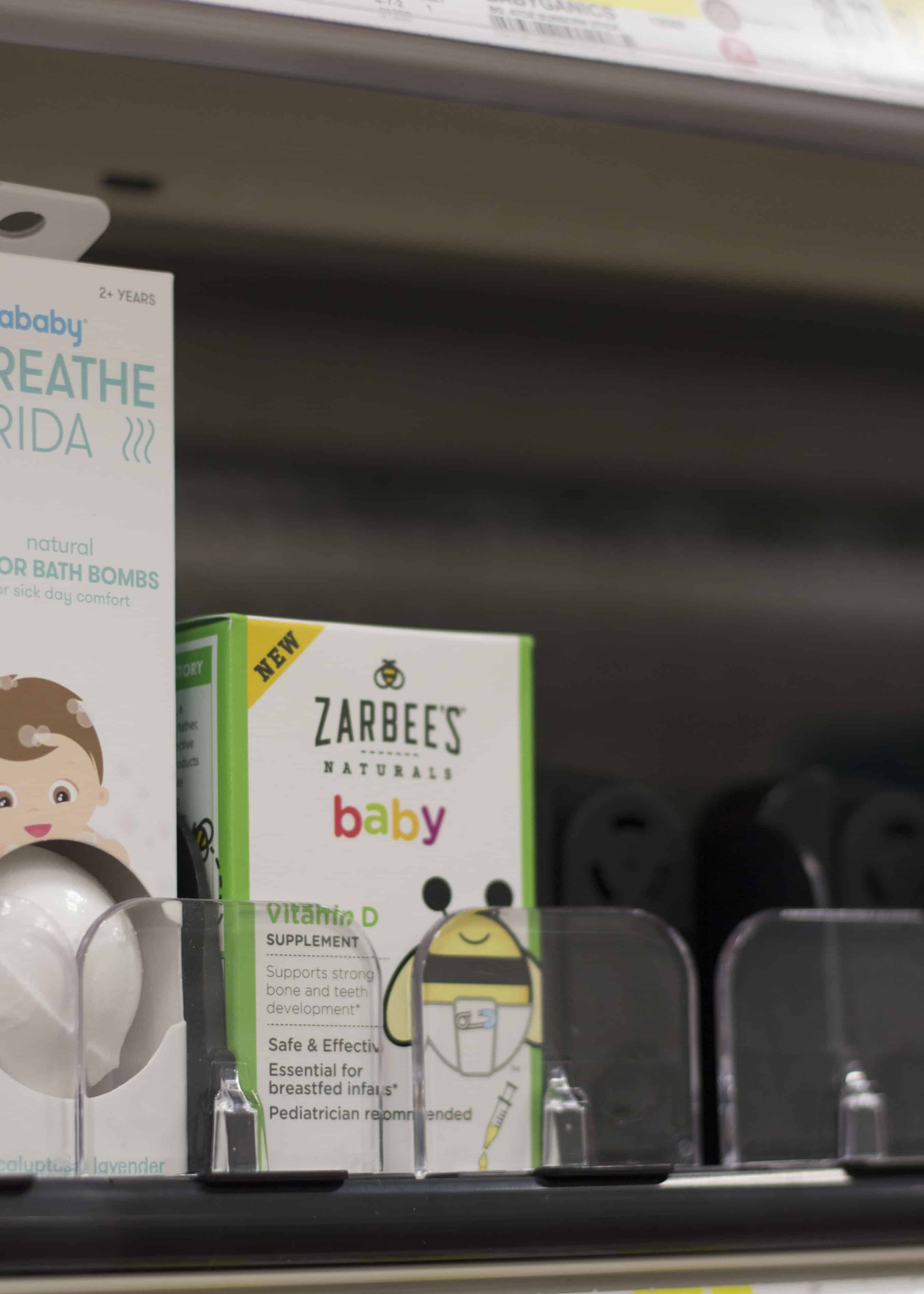
- It’s kind (and common!) to offer to replace milk storage bags for your donors. Stocking up early is a great idea. Some donors prefer a specific brand, so shopping the sales and coupons for what’s available is a great strategy.
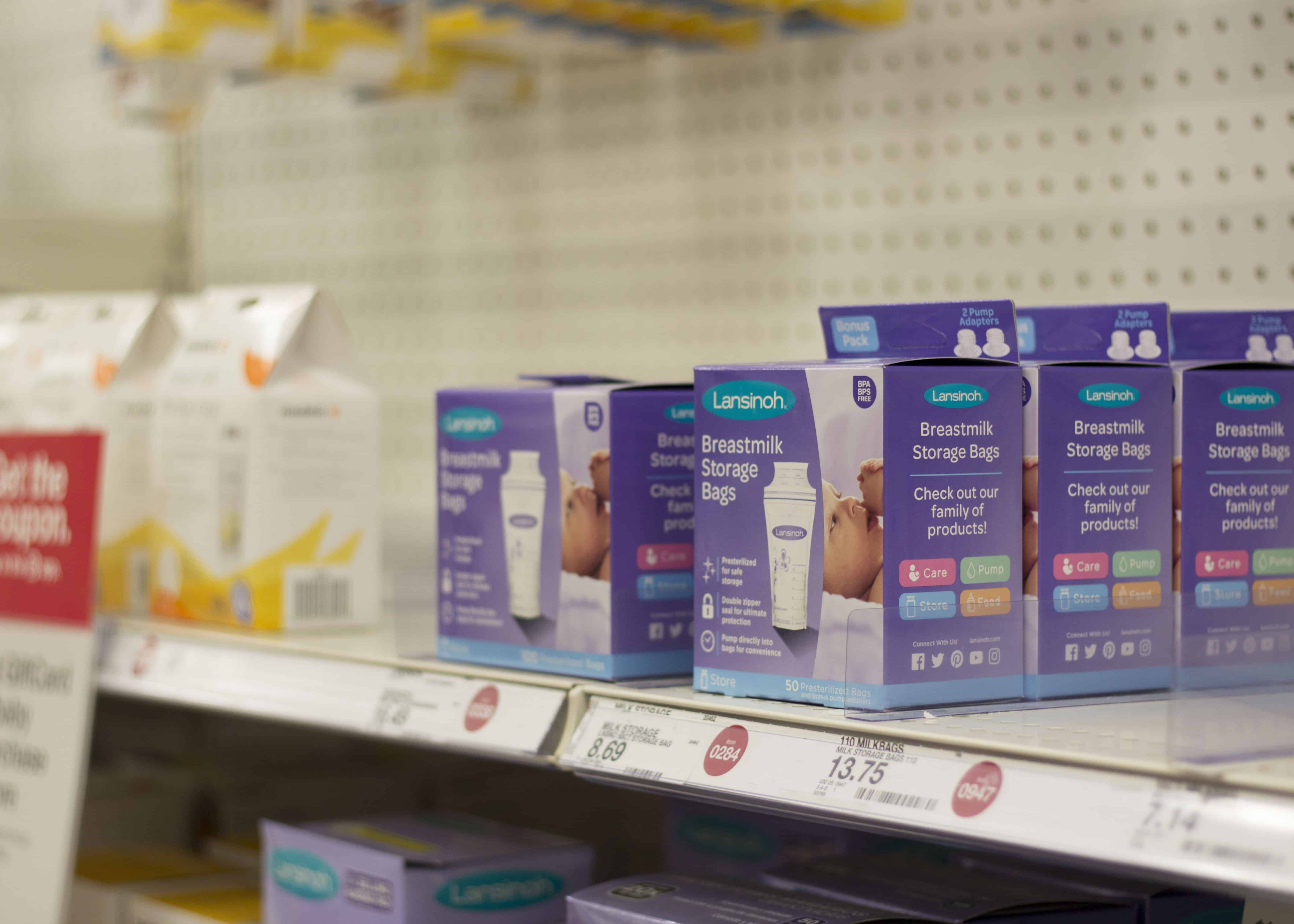
- Bottles, nipples, bottle brushes, drying racks… You’re still going to need plenty of those.
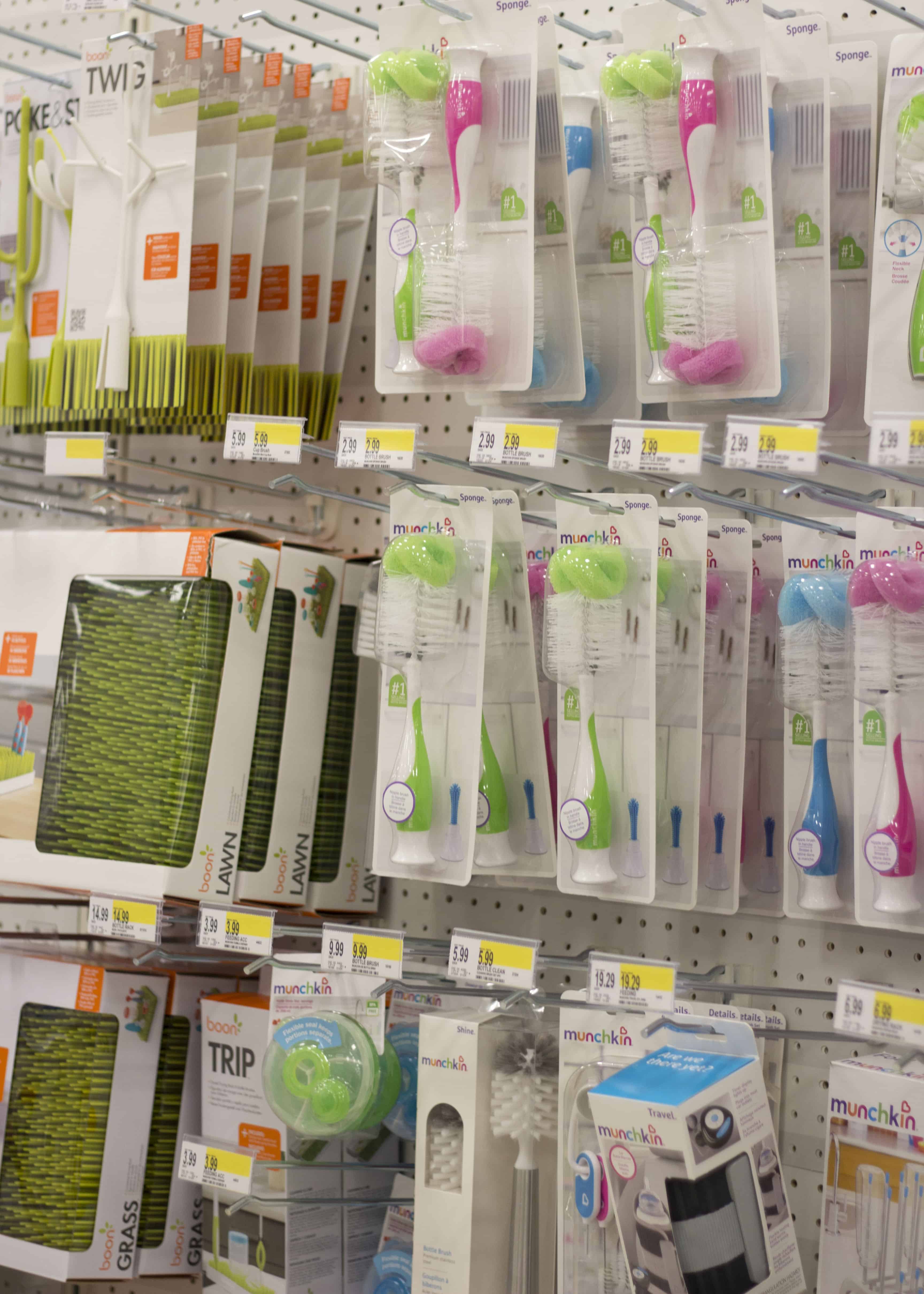
- If you plan to let your own milk dry up, you’ll likely still need nursing pads for at least the first few weeks postpartum.
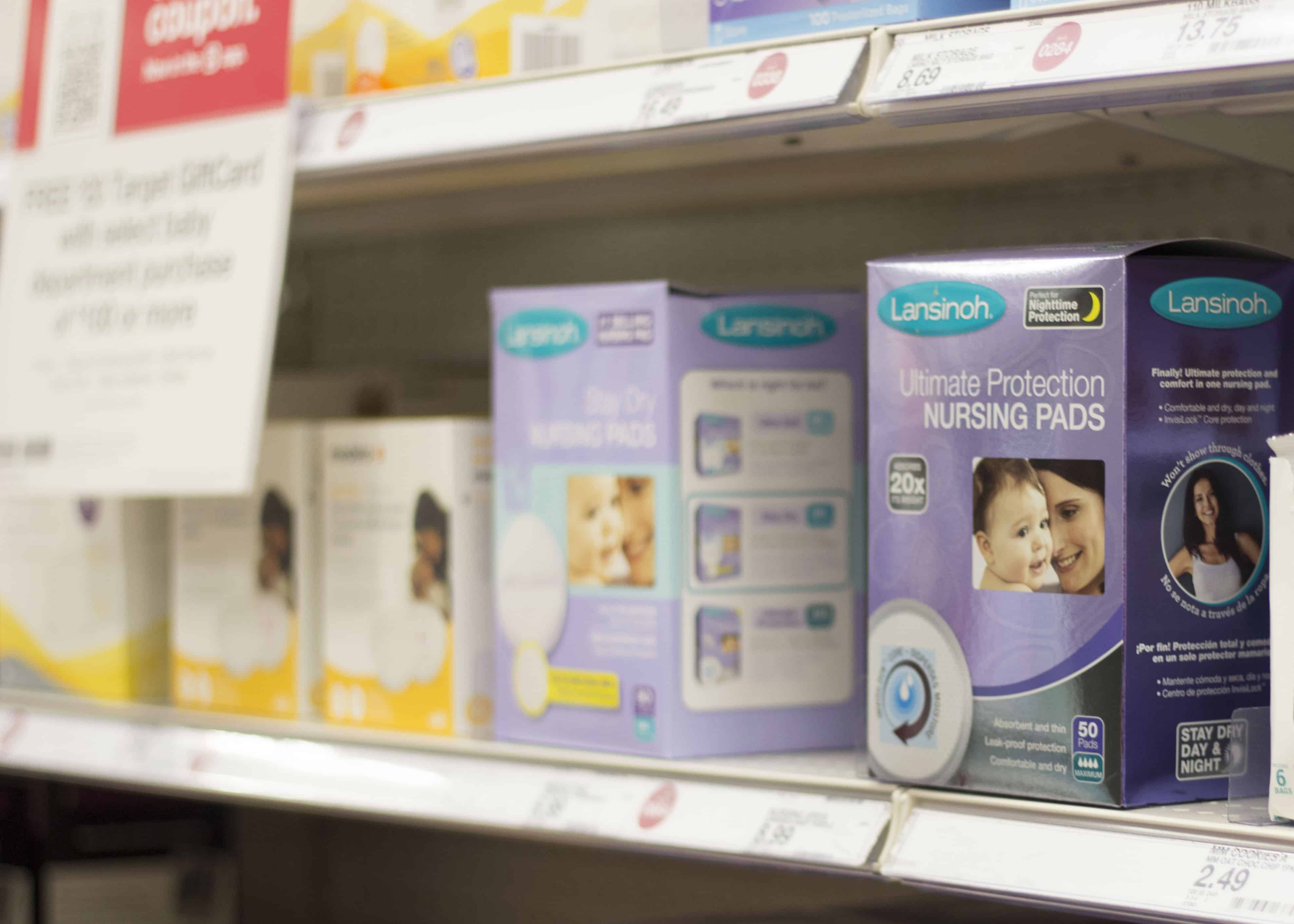
- Coolers and ice packs are essential for being on the go, since donor milk will eventually spoil if not kept cold.
Make Sure You Have Support Around You
Let’s face it guys… the idea of donor milk is still pretty ‘odd’ and surprising. Some people will not understand or respect your choice. You need to believe in the choice you made and having people around you support that choice helps a lot. We’ve been lucky that our pediatrician is 100% on board with it, as well as most of our family.
Be Sure To Network
We managed to fill our freezer even before our baby arrived thanks to letting people know we planned to use donor milk. Make friends and family aware of your choice early on- they may be or know over-suppliers who have milk to spare. Breastmilk can be stored in a stand-alone freezer safely for up to one year, so you’ve got time to build and use a stash of donor milk. Also reach out to groups like Eats On Feets and Human Milk 4 Human Babies (and their local divisions!). They’re an amazing way to connect with potential donors, and people who have been doing this for a while.
Keep Your Baby’s Feeds Paced
Babies drinking from bottles get milk easier than babies drinking from the breast. Because of this, they can be more likely to overeat. We make sure to pace our pumped donor milk feeds, so that tummies aren’t upset, and milk isn’t being wasted. By a year old, my squish will still be drinking 3-4 oz. bottles with the slowest flow nipple- and growing just fine!
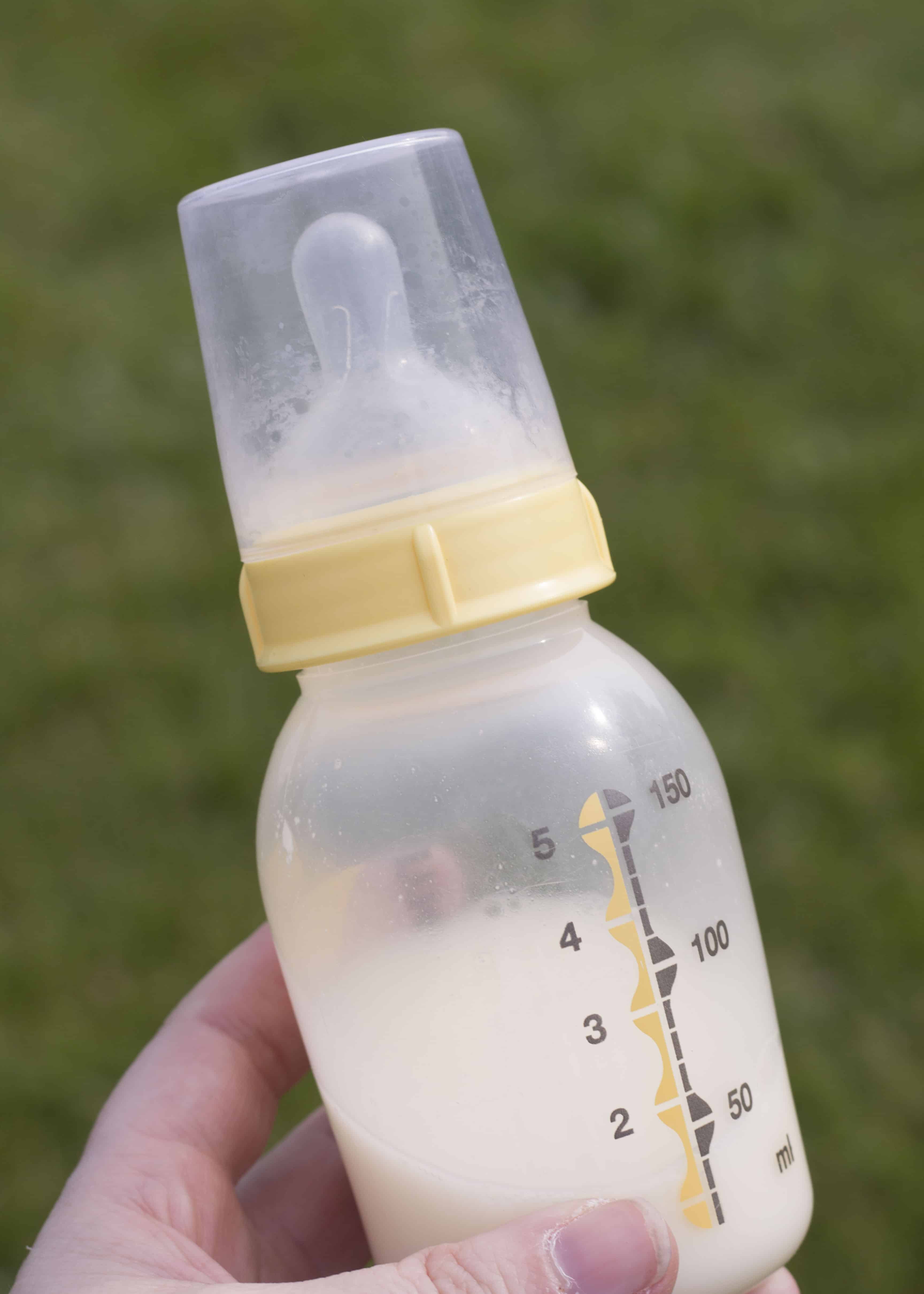
Think About Your Freezer Space
As I mentioned above, donor milk can be stored for quite a while in a stand-alone freezer. Bags of milk can begin to take up space quickly, so you’ll want to consider your freezer space early on. The freezer on your refrigerator isn’t as efficient for long term storage, and won’t hold much milk. A chest freezer is a great choice if you can allot the funds.
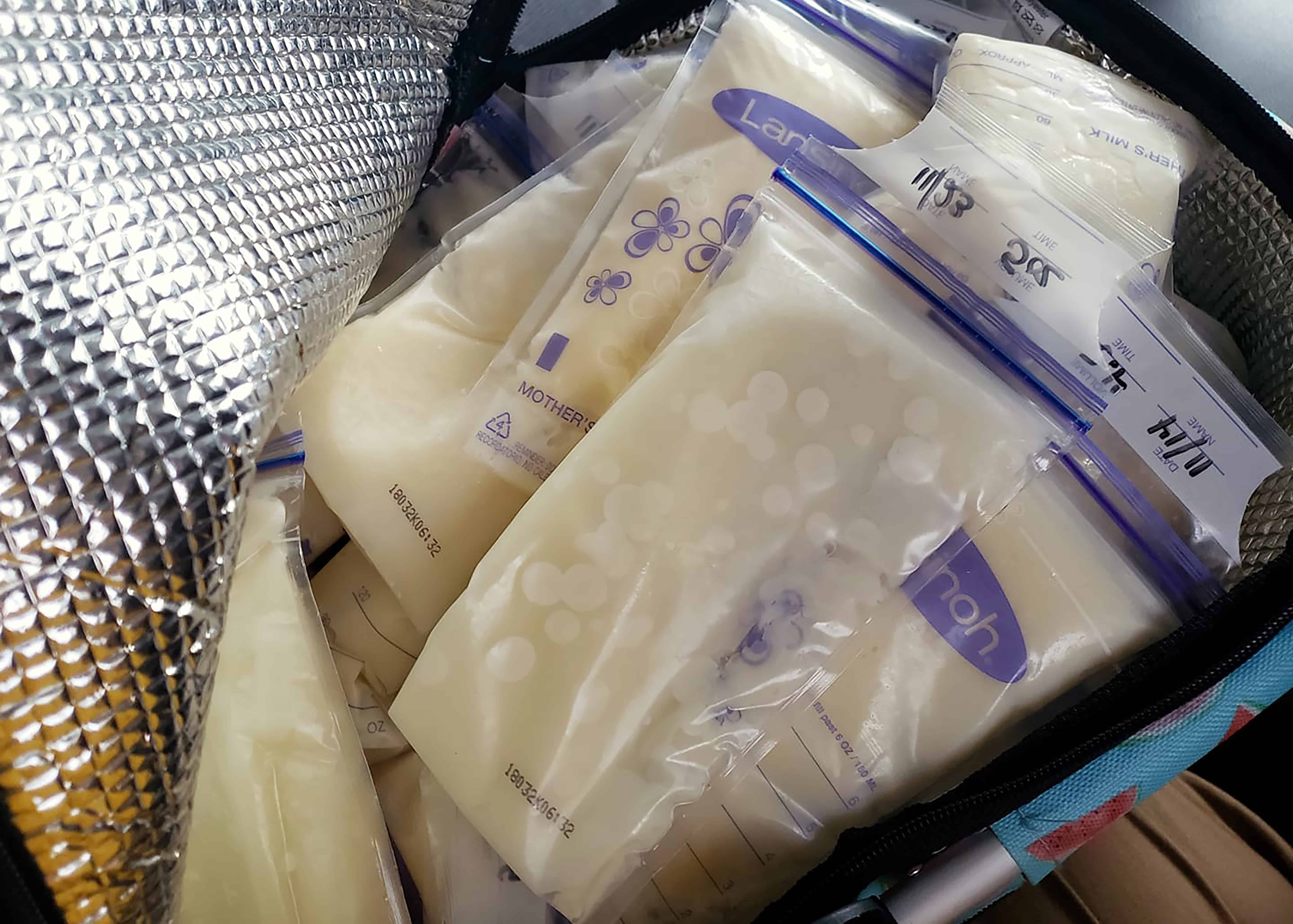
Develop A Routine And Plan Ahead
Feeding with donor milk requires a bit of planning ahead. Milk needs to be defrosted before it’s available for baby, so you need to find a system that accounts for that. In our home, my husband takes charge of the milk, and defrosts a batch twice a day. He fills bottles each morning and evening, leaving some extra defrosted milk in the fridge each time- just in case #thelastone is a bit extra hungry. When I go to run errands, I grab a bottle or two from his stash to take along in a cooler. It’s what works for us. You’ll need to find the schedule that works best for your family.
Be Flexible
Know that feeding your baby isn’t necessarily one-size-fits-all. You may have trouble finding donor milk at times, and need to consider other options. Your baby may reject a particular donor’s milk (due to high lipase, for example), and throw the process off. My own squish was hospitalized, and it was much easier for us to use the hospital-provided formula while we stayed there with him. Remind yourself that fed is best, and you’re doing the best you can.
Know Your Baby + Trust Your Mama Instincts
At the end of the day, you and your family know your baby best. If everyone around you thinks formula is the way to go, but you notice a lot of gas, reflux, or vomiting, you may need to trust your gut and make a change. Is baby reacting poorly to donor milk, due to a diet or medication issue? It may be time to change your approach. Keep your focus on what is best for your family, and your child- and know you’re making the best possible choice you can.
Give Yourself Some Grace
It’s never going to be perfect. There will always be doubts, worries, rough days feeding, occasional spit up, etc- no matter WHAT method of feeding your baby you choose, donor milk or not. Give yourself some grace, and have faith in your ability to mother your baby. Being flexible, doing your best, and going easy on yourself are all critical to being sure baby is fed, growing, and thriving. They go a long way to making sure mama is making it through these early days as well.
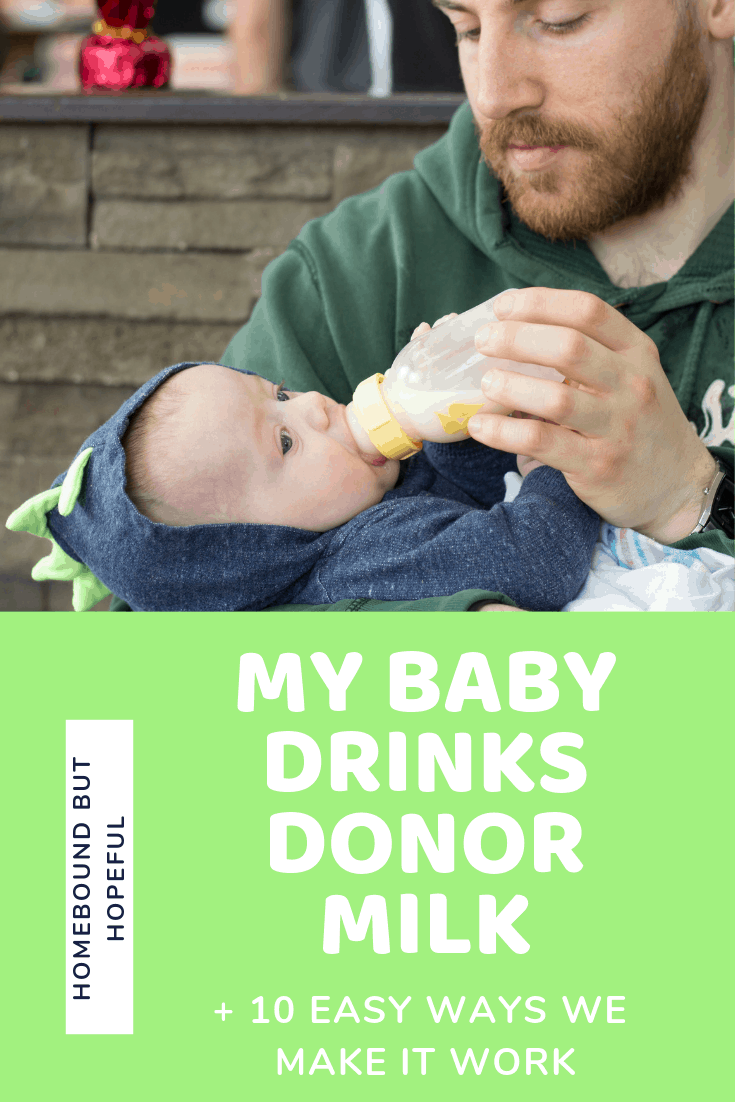
I’d love to hear the way(s) you’ve fed your babies! Formula, direct nursing, donor milk, exclusive pumping- or a big mix like me?! Tell me about your choices and experiences in the comments below!
[And remember- No Judgement!]

